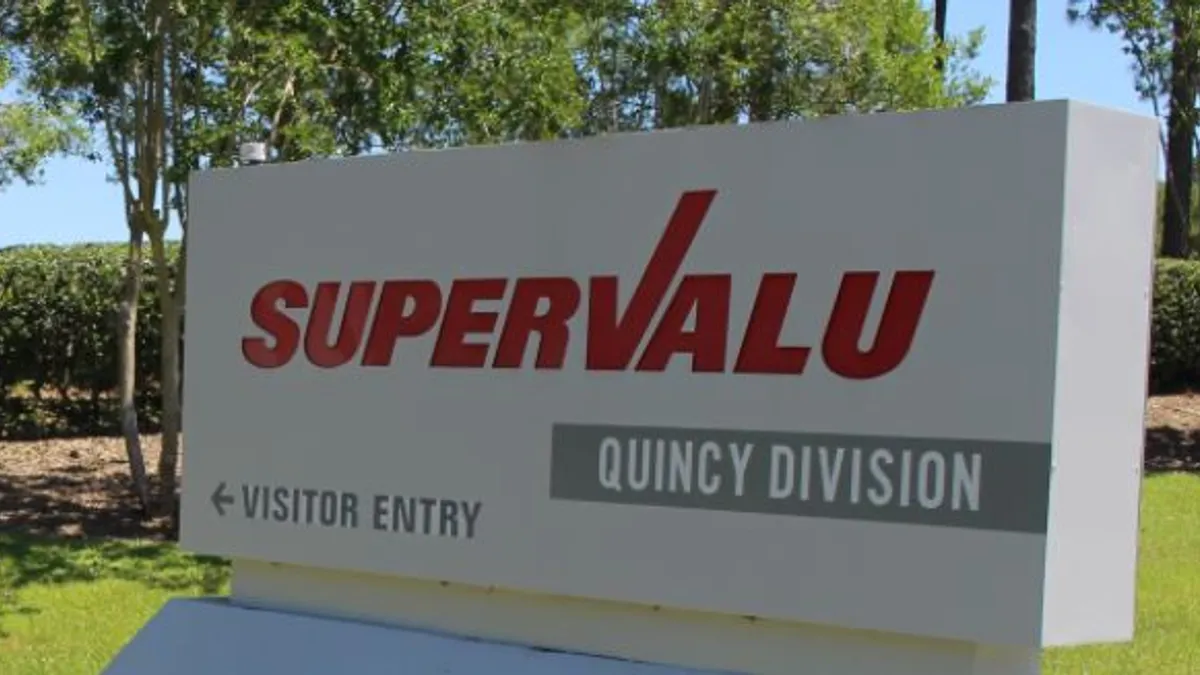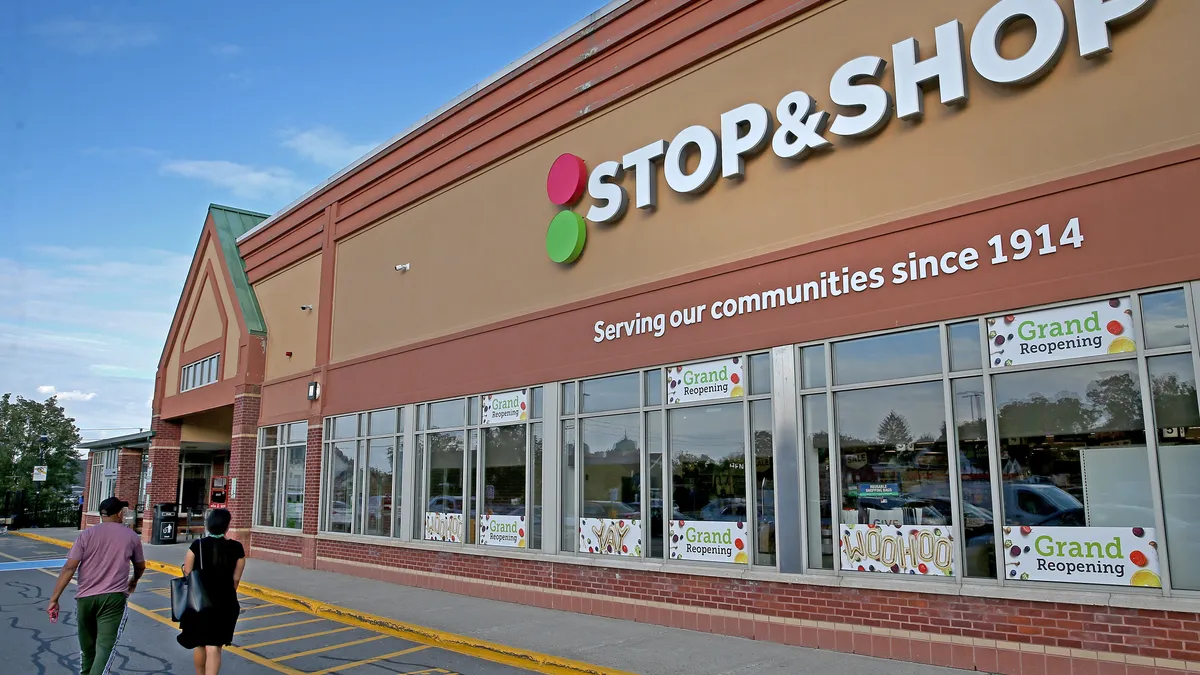Dive Brief:
- Supervalu wants to reorganize as a holding company, according to a news release. The move would allow the company to more effectively separate its wholesale and retail businesses, and to sell off retail stores and other assets.
- According to the company, the reorganization would also better segregate liabilities for its retail and wholesale business, give the company much-needed strategic and financial flexibility and generate an estimated $300 million tax benefit over the next 15 years.
- In a proxy statement submitted to the Securities and Exchange Commission, Supervalu also struck back at activist investor Blackwells Capital, which recently proposed six nominees for the company’s board of directors. It said the two sides are broadly aligned on strategy, but that the firm has made several unrealistic demands of Supervalu, including that it sell its retail operations to Blackwells for “nothing,” Grocery Business reported.
Dive Insight:
Supervalu’s proposed reorganization aims to help the embattled company do what it’s already doing — except more efficiently and cost effectively.
In recent years, Supervalu has put more emphasis on its wholesaling division, which seeks to capitalize on mounting industry competition. The company’s distribution sales make up more than three-quarters of its overall sales now, compared to around 44% just two years ago. It’s also made key acquisitions in the space, including Associated Grocers of Florida and Unified Grocers, based in California — both of which happened last year.
At the same time, the company’s retail division has been a drag on profitability, and so it’s looking to jettison underperforming stores and banners. The company sold off most of its Farm Fresh banner earlier this year and is currently seeking a buyer for its Shop n’ Save and Shop n’ Save East divisions. By restructuring as a holding company structure, according to Supervalu, it can complete those pending transactions and any future ones “in an operationally efficient and strategic manner.”
The retailer/wholesaler also recently reached a $483 million leaseback sales agreement with an undisclosed buyer for eight of its distribution warehouses. Three of the warehouses are located in Illinois, two in California, and one each in Wisconsin, Pennsylvania and Florida. They total 5.8 million square feet.
The reorganization will likely do little to appease activist investor Blackwells Capital, which has publicly clashed with Supervalu since last October. The firm claims Supervalu has resisted its suggested improvements, but in a proxy statement filed yesterday, the company said it had meaningfully engaged with Blackwells, and that the two sides were in agreement that the company needed to step back from its retail operations, sell off assets and find new executive leadership. Supervalu says it was caught off guard by Blackwells’ decision to take its grievances public late last year.
Supervalu also outlined numerous demands made by Blackwells and its managing partner, Jason Aintabi. Back in January, Aintabi offered to buy the company’s retail division for nothing, and proposed that he lead that division “despite his lack of industry experience,” according to Supervalu.
“We noted that our Retail business would need to be sufficiently capitalized and purchased and led by someone with at least some grocery or retail experience given our Retail business would be a significant customer of our Wholesale business,” the company noted in its proxy filing.
According to Supervalu, Blackwells has also requested detailed information about the use of its corporate jet and its board selection process — areas that the company claims are sufficiently transparent.
Blackwells currently has six nominees up for election to Supervalu’s board. The firm originally nominated three candidates, but increased its slate after the retailer/wholesaler suggested it field more qualified candidates, according to the proxy filing. Supervalu said it has offered to interview two of Blackwells’ candidates, but the firm has refused to make them available.
All of these developments will come to a head at Supervalu’s annual shareholder’s meeting this summer — a meeting that has yet to be scheduled.










